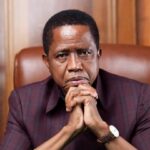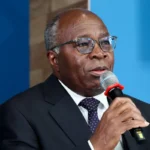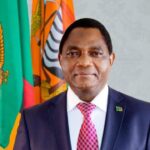Dr. Dambisa Moyo is a renowned economist, author, and international public speaker, recognized for her insightful perspectives on global economic issues and development. Here are 20 key facts about her life, work, and impact.
- Early Life and Education: Dambisa Moyo was born on February 2, 1969, in Lusaka, Zambia. She pursued her undergraduate degree in economics at the University of Zambia.
- Advanced Degrees: Moyo furthered her education by earning a Master’s degree in Public Administration from Harvard University and a Ph.D. in Economics from Oxford University.
- Global Experience: Moyo has extensive international experience, having worked in various capacities across the globe, including in the United States, the United Kingdom, and Africa.
- Career in Finance: Before venturing into writing and public speaking, Moyo worked for Goldman Sachs as an economist, focusing on macroeconomics and global markets.
- Development Economist: Moyo is recognized as a leading development economist, analyzing the economic conditions and challenges faced by developing nations, particularly in Africa.
- Author: She is the author of several influential books, including Dead Aid (2009), which critiques foreign aid and its impact on African countries. The book became a bestseller and sparked significant debate.
- Challenging Aid Models: In Dead Aid, Moyo argues that foreign aid perpetuates poverty and dependency in Africa and advocates for innovative solutions to stimulate economic growth.
- Subsequent Works: Moyo has authored other notable books, including How the West Was Lost (2011), which discusses the economic challenges facing the West, and Edge of Chaos (2018), focusing on the need for reform in global governance.
- Public Speaker: Moyo is a sought-after speaker at major global forums, including the World Economic Forum, TED, and the Council on Foreign Relations. Her talks often address economic policy, global development, and the future of Africa.
- Influential Thinker: Moyo has been recognized as one of the most influential thinkers by various media outlets, including TIME magazine and The New York Times.
- Policy Advisor: She has served as a policy advisor to various governments and organizations, contributing her expertise to key economic and development issues.
- Board Memberships: Moyo has held board positions in prominent companies, including The 3M Company, Barrick Gold, and the international organization, the International Monetary Fund (IMF).
- Recognition and Awards: Moyo has received numerous awards and honors for her work, including being named a Young Global Leader by the World Economic Forum.
- Thought Leadership: As a thought leader, Moyo frequently contributes articles to major publications, including The Financial Times and The Wall Street Journal, where she shares her insights on economic trends and policies.
- Advocate for Women: Moyo is a strong advocate for women’s empowerment and often discusses the economic impact of gender inequality in her talks and writings.
- Global Perspectives: Her work emphasizes the importance of understanding the interconnectedness of global economies and the need for collaborative solutions to address complex challenges.
- Cultural Insights: Moyo’s background and experiences provide her with a unique perspective on the cultural dynamics influencing economic policies in different regions.
- Public Engagement: Moyo engages with the public through social media platforms, where she shares her views and engages in discussions on economic issues and current events.
- Future Outlook: Moyo’s ongoing work focuses on addressing the challenges posed by globalization, technological change, and the need for sustainable economic growth.
- Legacy: Dr. Dambisa Moyo continues to inspire future generations of economists, policymakers, and activists through her compelling ideas and commitment to driving positive change in the global economy.
Dr. Dambisa Moyo’s contributions to economics and global development make her a pivotal figure in contemporary discussions about the future of Africa and the world. Her insights challenge conventional wisdom and encourage innovative thinking, making her a prominent voice in the field of economics.






